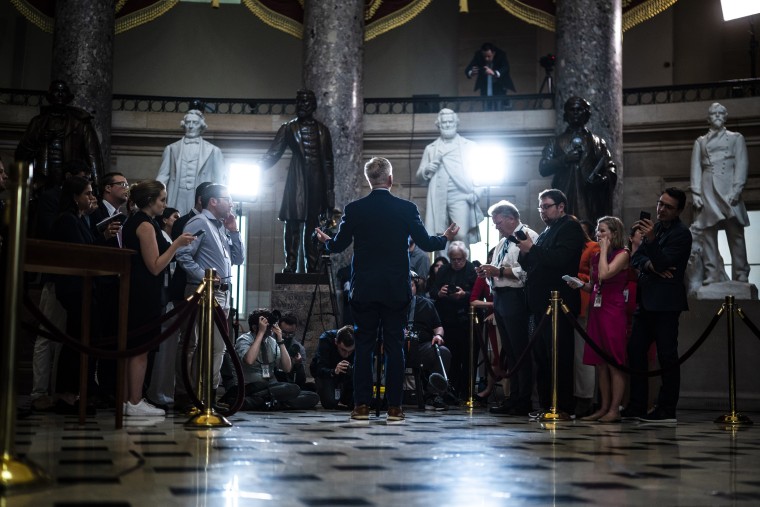[ad_1]
In 1910, Speaker Joseph Cannon, R-Ill., offered a motion to oust himself to put his detractors on the record. Republicans voted overwhelmingly to keep him in office. “Cannon, Shorn of His Power, Keeps Office,” read the New York Times headline the next day.
A speaker pro tempore taking the gavel after McCarthy’s ouster would be in untested waters.
The acting speaker would likely not have the same powers as the speaker since “the intention was for them to act in a short-term capacity while the House selected a new speaker,” said Catholic University professor Matthew Green, author of “The Speaker of the House: A Study of Leadership.”
How quickly could the House move to elect a permanent speaker?
House rules do not lay out how long the speaker pro tempore can remain in power before the chamber votes on a new permanent speaker.
The House could proceed directly to the election of a new speaker or decide to hold it at a later time.
“In the event of a vacancy in the speakership, there is no time frame that the House must follow to elect a new speaker,” Green said. “However, as a practical matter, the House will want to elect a new speaker quickly in order for the chamber to move forward with its legislative business.”

Who would be McCarthy’s temporary replacement?
The short answer is: We don’t know, but there are some hints.
On Jan. 9, the House chair announced “that the Speaker has delivered to the Clerk a letter dated January 7, 2023, listing Members in the order in which each shall act as Speaker pro tempore.” Essentially McCarthy gave a list of names of members he would want to act in his absence if he was no longer able to serve. These names are not public, so there is no way to know who is on the list until the speakership is vacant.
Separately in January, McCarthy also appointed members to act as speaker pro tempore to sign enrolled bills. These names were made public in the Congressional Record, offering a look at who McCarthy trusts in his absence. But it is important to note, this is not the list that would be consulted in the case of a vacancy.
McCarthy chose Reps. Patrick McHenry and Richard Hudson of North Carolina; Rep. Adrian Smith, of Nebraska; Rep. Robert Wittman, of Virginia; Rep. Andy Harris, of Maryland; and Reps. John Joyce and Guy Reschenthaler, of Pennsylvania to act as speaker pro tempore to sign enrolled bills. These members are typically chosen mostly for one of two reasons: because they are allies of the speaker’s or because of their districts’ proximity to Washington, so they can preside over pro forma sessions when the House is out.
[ad_2]
Source link
